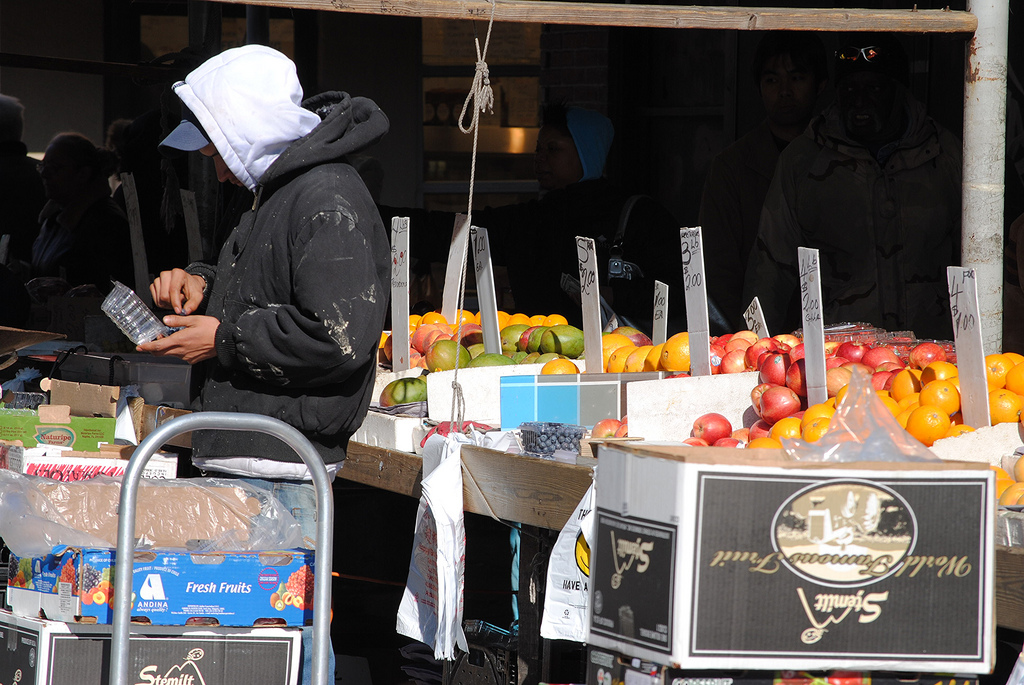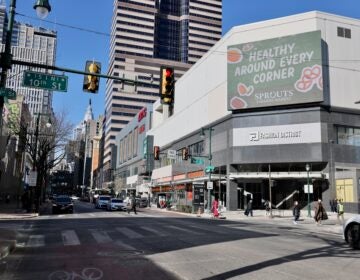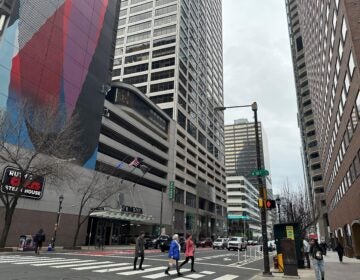Property owners vote down 9th Street Business Improvement District

The 9th Street Business Improvement District (BID), which would have covered the Italian Market and its surrounding blocks, was defeated by a vote of the affected property owners this week.
Councilman Mark Squilla’s office reports that the official poll of property owners in the BID area, the only people with a right to vote on the proposal, produced enough opposition votes to kill the BID. Over one-third of affected property owners needed to vote against the plan to defeat it and 33.86 percent voted in opposition to the bill. As a result, legislation to officially establish the BID will not be brought up before City Council.
The long-planned 9th Street BID — which would levy a small fee on property owners in the affected area to pay for shared services to make the district cleaner and safer — produced a raging controversy in recent months as many longtime commercial property owners on the famed corridor expressed outrage at the idea of paying what they thought would amount to an additional tax for services they don’t want.
“To me a BID is like a status symbol, it’s not actually going to change anything,” says Mario Girardo, who owns both curbside stands and storefronts in the Italian Market. “Right now its [9th Street] is the cleanest I’ve ever seen it. We don’t need this.”
Over the last three decades, business and neighborhood improvement districts have proliferated across the city as municipal services have been cut back. They range from larger entities covering big businesses and anchor institutions, like the Center City District or University City District, to smaller neighborhood affairs like the East Passyunk Avenue Business Improvement District or the nascent Mayfair Business Improvement District.
The variety of services provided ranges considerably, with the Center City District boasting an army of street cleaners and uniformed community service representatives, and more modest neighborhood groups like Mayfair surviving on an annual budget of a mere $270,000.
For the Italian Market, as in most BID territories, the principal issues under consideration are cleanliness and safety. Street cleaning, cameras, and additional lighting were all services that BID proponents hoped to install when the organization was greenlit. A corridor manager would have been hired as well, with a projected salary of $60,000.
“What makes BIDs work really well is that they provide the services cities don’t provide anymore,” says Michelle Gambino, business manager for the South 9th Street Business Association. “It’s not only our city of Philadelphia. Many cities are in the same situation. Resources just aren’t there to support what business districts need.”
Gambino and other supporters felt that additional street lighting and regular cleaning would attract more people to the Italian Market, especially during evening hours. As the neighborhood surrounding the market has gentrified, many merchants say that food traffic during the day has slowed as fewer stay-at-home parents shop during daylight hours. The BID promised to help cater to the new demographic that dominates the area.
The proposal has been in the works for years, with the idea initially floated in 2009, Gambino says. Then in 2013 the South 9th Street Business Association got a grant from Philadelphia’s Commerce Department to begin exploring the proposal in earnest. Nine public meetings have been held and six waves of mailers issued.
But opposition began crystallizing earlier this year and got organized with remarkable efficiency. Those who voted down the BID, like Joe Brown (owner of Connie’s Ric Rac and other businesses on the corridor), believe that the over 100-year-old market is thriving without such interventions.
“We aren’t even making $50,000 a year, and you want to take money out of our pockets to pay someone $60,000?,” says Brown. “Bullshit. Anyway, garbage used to pile up to my awning. That’s when business was best.”
The battles lines around the Market were complex. In addition to Gambino and some of the most prosperous businesses on 9th Street, like DiBruno Brothers, the Bella Vista Neighbors Association supported the proposal. But many of the other older businesses in the market were skeptical, as were many of the Latino businesses who feared the organization would accelerate gentrification, raise rents, and force them out.
This isn’t the first time that BIDs have been met with ferocious opposition. Similar objections met neighborhood improvement districts for the Callowhill neighborhood in 2011-2012 and for Washington Square West in 2014. The activists who fought the effort described it as a privatization campaign and a means to increase property values at the expense of renters and small businesses.
“They are just completely undemocratic,” says Lee Quillen, an opponent of the Callowhill BID. She says a few Italian Market merchants called her seeking advice about defeating the BID. “We are still against them. It’s taxing people for services that the city should be providing to begin with.”
Partly as a result of these fiercely fought campaigns, Harrisburg enacted new legislation to give more power to opponents, decreasing the percentage of property owners needed to defeat a proposed district from 51 percent to one-third of those affected.
There is a 45-day wait period after hearings are held after a bill to establish a BID is introduced and before it can be enacted into law. That window is what the opponents of the 9th Street BID took advantage of, rallying business owners to their cause in the weeks after Councilman Squilla introduced the legislation at the beginning of this council session. This week would have been the first Council session that the final vote on the bill could have been held.
“Our intention is to meet with the people in opposition to it and see if we can sit down and see what their main concerns are,” says Councilman Squilla. “Maybe we could manipulate the plan to enable it to get more support and consider re-introduction if we get to a point where it is workable for the majority of the people.”
WHYY is your source for fact-based, in-depth journalism and information. As a nonprofit organization, we rely on financial support from readers like you. Please give today.







